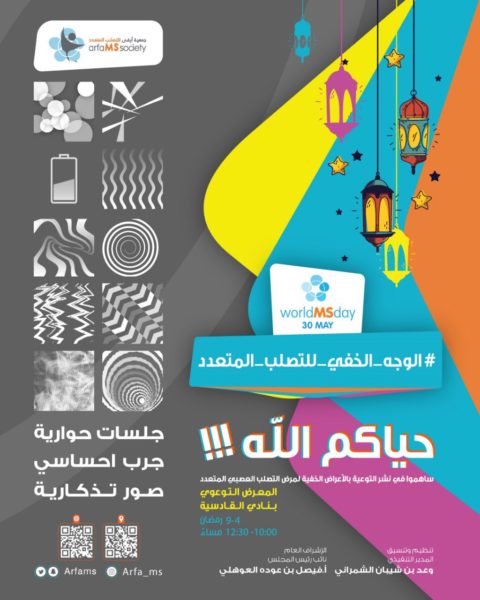Using MS for good
 When diagnosed with MS after seven years of illness, Netherlands’ native Reni De Boer was never going to let MS, anger, or a sense of injustice get the better of her. Now aged 32, Reni is releasing a book – Stuk!– on World MS Day 2012 about living with MS [and, has become somewhat of a local hero and an ambassador for the Dutch MS community.
When diagnosed with MS after seven years of illness, Netherlands’ native Reni De Boer was never going to let MS, anger, or a sense of injustice get the better of her. Now aged 32, Reni is releasing a book – Stuk!– on World MS Day 2012 about living with MS [and, has become somewhat of a local hero and an ambassador for the Dutch MS community.“You might think that I would be angry when I was misdiagnosed for so long, but in a way it gave me some time to get used to the idea that I was going to be ill for a very long time. When I got the MS diagnosis, it was a difficult time, mostly because I had a very bad image of MS, thinking that I would end up in a wheelchair and maybe even die in a couple of years. As soon as I got some more correct info on MS, I started to learn that it doesn’t have to be the end of the world,” she says.
Despite needing to use a wheelchair within a year of diagnosis, she merely saw it as transportational tool, like a bicycle, not a place of confinement, and even saw a positive side in contracting MS young. “At that age, you have a whole world of opportunities ahead. Getting ill means that the whole mountain of opportunities was cut in half, but that still leaves a lot of opportunities.”
In 2007, Reni put aside any personal misgivings about beauty pageants and accepted a role as Miss Netherlands, a contest for people with disabilities and as ambassador for a group which campaigns for the rights of those with disabilities and chronic illnesses – Holland Unlimited. “I don’t favour beauty pageants, though no offense to those that do! However, the pageant shows that you can be beautiful and disabled at the same time…and that’s an image that doesn’t usually come to mind when people think of people with disabilities,” Reni says. “Most of the time, people think that we are passive, needy, not very smart, not attractive and that our communication skills are below average. I think that the pageant shows a different and more correct image and in an easy and accessible way, without pointing fingers.”
Reni’s role as ambassador for Holland Unlimited allowed her to get a lot of media attention for the needs of people with disabilities, as well as political attention and interest from the general public. Her main aim was to get the Netherlands to ratify the UN Convention on equal rights for people with disabilities – an objective that sadly she is still striving for.
More recently, Reni was approached by a publisher to write about her experiences with MS which is called Stuk!– a Dutch word which means both broken and beautiful, perhaps most readily interpreted at ‘Delicate’ in English, though the play on words is lost through translation. “The title is meant to trigger a reaction from people, to get them interested and to get them smiling,” Reni says. “In Dutch, the word is the same thing you say when you drop a cup and it breaks and also what people say to someone they fancy walking past. What I want to say with this title is – it is okay for you to look at me, even better than looking away. Don’t handle me with care, treat me equally.”
The book, which took eight months to write between bouts of fatigue and renovating a house, is being launched on World MS Day 2012. It will be presented by Reni to the President of the Dutch Parliament in a bid to raise awareness of MS and those living with it. It is aimed at everyone, people with and without MS. Reni wrote personally about her illness, diagnosis, uplifting achievements like the beauty pageant as well as practicalities like work and education. “I hope that lots of people will read it and change the way they look at people that are ill. Maybe the most important thing is that I hope that people enjoy reading my book, and that I may be able to help them a bit with living with MS. “
Reni is yet to decide on her step though has taken stock of her life through her MS: “MS didn’t make my life less happy and sometimes I get the feeling that we, in the western world, have too many choices. This vast amount of choices stands in the way of us being able to be happy. As a consequence of MS, I have fewer choices than people that are healthy, but, as a result, it’s easier to choose the right one and to be happy with it. The most important things in life haven’t changed to me: I have a very loving husband and the support of my family. And they give me all the basis that I need.”
Related news
Since 2009, you have helped us bring the world together for people with MS. Help us end MS across the…

The global MSIF movement has gone full steam ahead in using the #MyInvisibleMS toolkit, adapting the materials and sharing them…

We asked people from around the world to tell us about their invisible symptoms. In this video Giulia, Diego, Michela,…
